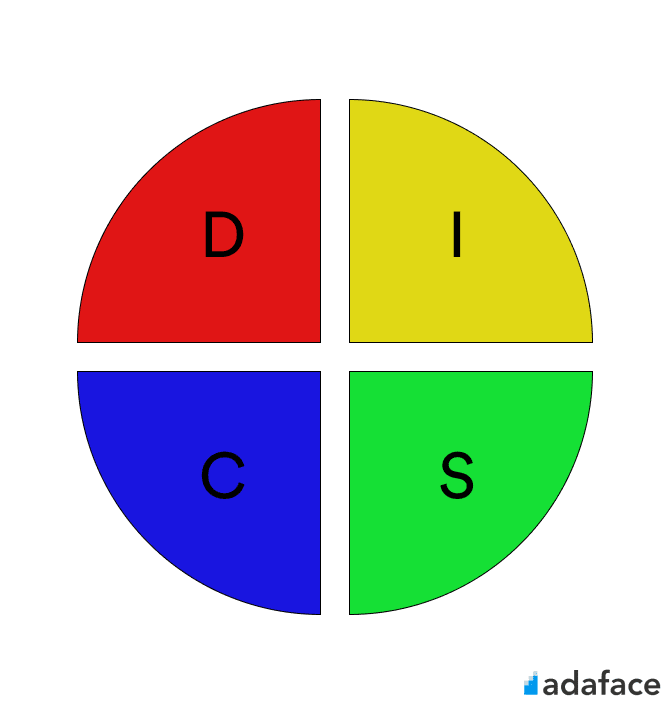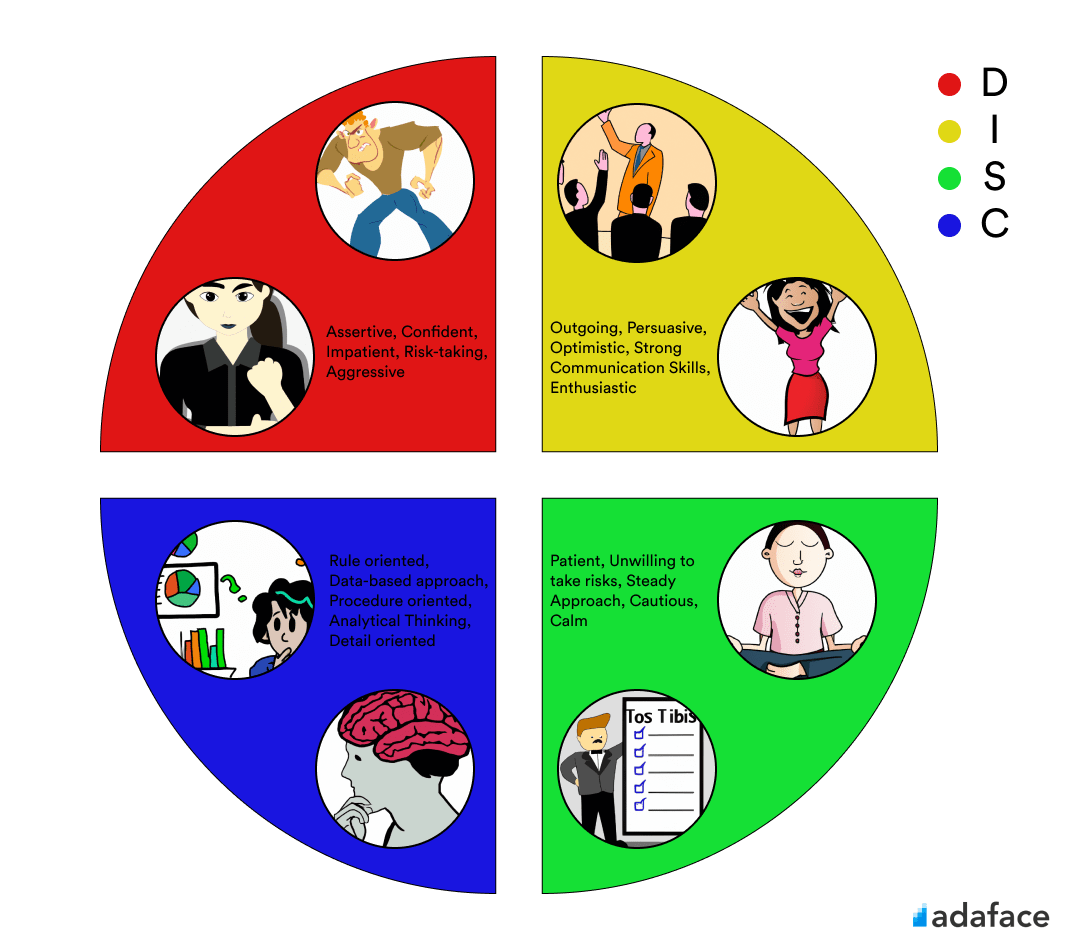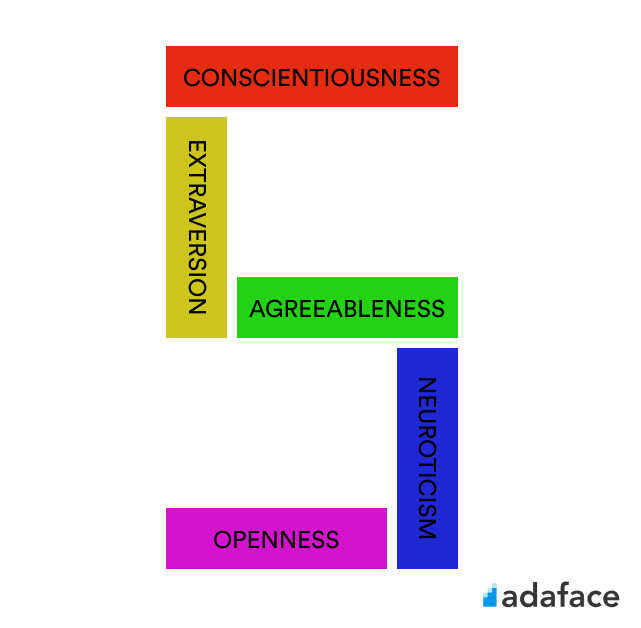
Do you know what assessment tool is considered the most "unreliable and untrustworthy" by most testing professionals?
The DISC Personality Assessment.
However, let us not go straightaway into taking a jab at DISC without knowing its purpose. Let us first understand the DISC personality classification and then figure out whether it is a viable option.
A Brief History
The research on DISC began in the early 1900s when the Army asked psychologist William Morston to come up with why some soldiers behaved differently despite going through the same training for years.
Ten years later, he came up with the DISC theory, which was meant to explain "natural human behaviour". As it grew in popularity, tests were formed using the DISC model as the foundation, which was later used to classify people for a job.
What is DISC?
A brief overview of the behavioural traits of each of the DISC Personality Assessment:

- "D" : Individuals with the "D" trait are bold and confident. They also tend to be aggressive and impatient.
- "I" : Ones who have obtained a score in the "I" region are social individuals; very outgoing, effective communication and with an overtly optimistic outlook.
- "S" : The "S" trait involves cautious, patient individuals with a steady approach to their tasks.
- "C" : If the individual has obtained a score in the "C" region, they tend to be conscientious, have high analytical thinking and are detail-oriented in their day-to-day tasks.
Is the DISC Personality Test reliable?
You are well aware that the DISC Personality Test is used to predict an individual's behaviour, but how accurate are these predictions? Consider Steve Jobs, an entrepreneur, an inventor, a designer and an investor, among other things. Which of the above-mentioned personality traits would you expect him to fall under?
He mentions how the DISC Personality Test classified him as an I/D Personality, implying that he is outgoing and driven. Considering a person like Steve Jobs, this seems to be a pretty accurate depiction of his personality. He has many "D" traits as he was the co-founder of an organization such as Apple for a reason. Still, he is also influential, social, and an individual with strong communication skills, making him part of the "I" region.
This is an instance which shows that the DISC Personality Test can be pretty accurate in predicting an individual's personality. In fact, research shows that the DISC model has a test-retest reliability of 0.89. That means the scores obtained were similar even when candidates had multiple attempts at the DISC Personality Test.
If you're curious to try the DISC assessment for personal use, you can use the DISC strengths test.
If the DISC model has such a high-reliability score, why can it not be used to evaluate your employees' and potential employees' personalities to determine job performance?
Dangers of using DISC Assessment in Hiring
While the DISC Personality Assessment is a great predictor of human behaviour, it falls behind when applying this assessment for hiring purposes. There are three main reasons why this is happening:
Outdated Model
The DISC classification was brought about during the 1900s. Even if this was 100% accurate when explaining human behaviour during this era, one cannot assume that it can be used to classify and predict job performance in 2022. The Covid outbreak has changed how we work, and it has just been two years; After 100 years, multiple wars, technological innovation, and other major revolutions can significantly impact human behaviour and job performance.
Origin of the DISC Model
William Morston developed the DISC model to explain "normal human behaviour", not to hire the most qualified person for the job.
Low validity of DISC Model
For an employment tool to be useful, it needs to be both reliable and valid, i.e. the test scores must be consistent, and these test scores must be able to measure what it claims to measure (in this case, job performance). Research shows that the DISC model shows low validity when you use the test scores to determine job performance.
The "Big" Solution
The DISC Assessment does not work because it is more associated with explaining human behaviour than classifying people for a job. This implies that we need to use an assessment tool that can use an individual's personality to predict their capabilities on the job.

This is why the Big 5 Personality Test is one of the most widely used personality assessment tools for hiring. Decades of research show that factors such as - being extraverted, not being neurotic, and conscientiousness are consistent indicators of high-performing individuals.
These factors are 3 of the Big 5 Personality traits (or OCEAN) - Openness, Conscientiousness, Extraversion, Agreeableness, and Neuroticism.
Not only is this a widely used personality assessment tool, but also one of the most used pre-employment testing tools to predict the job performance of your potential employees.
On a Final Note
DISC, Myers-Briggs - these are all great ways to determine an individual's personality. However, if a personality test is used as a pre-employment tool to predict job performance, only one stands out from the crowd, and that is the Big 5 Personality Test.

Pragnesh is the EiR at Adaface. He loves reading books more than scrolling through social media, which is a big deal if you ask him.
Spending too much time screening candidates?
We make it easy for you to find the best candidates in your pipeline-
with a 40 min skills test.


